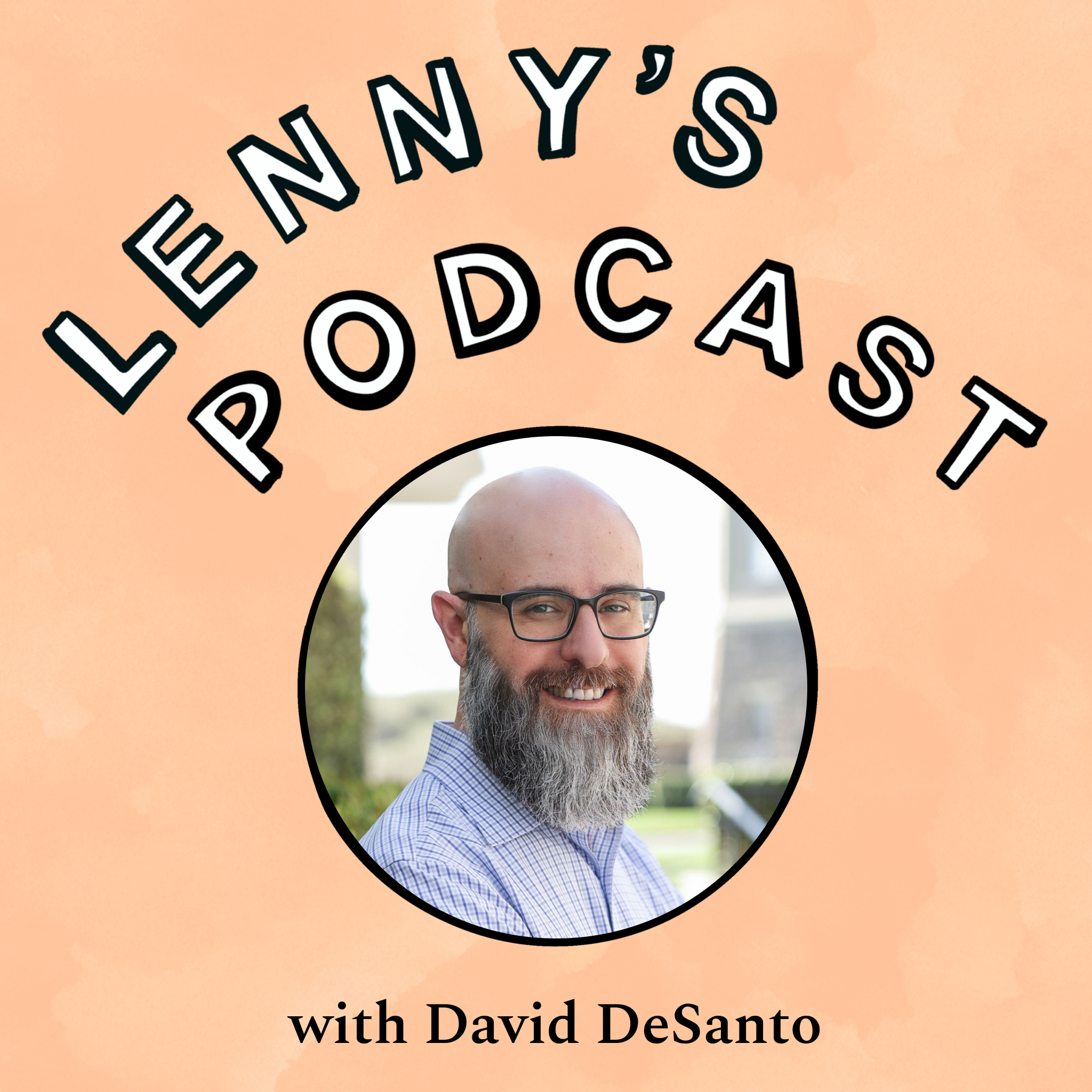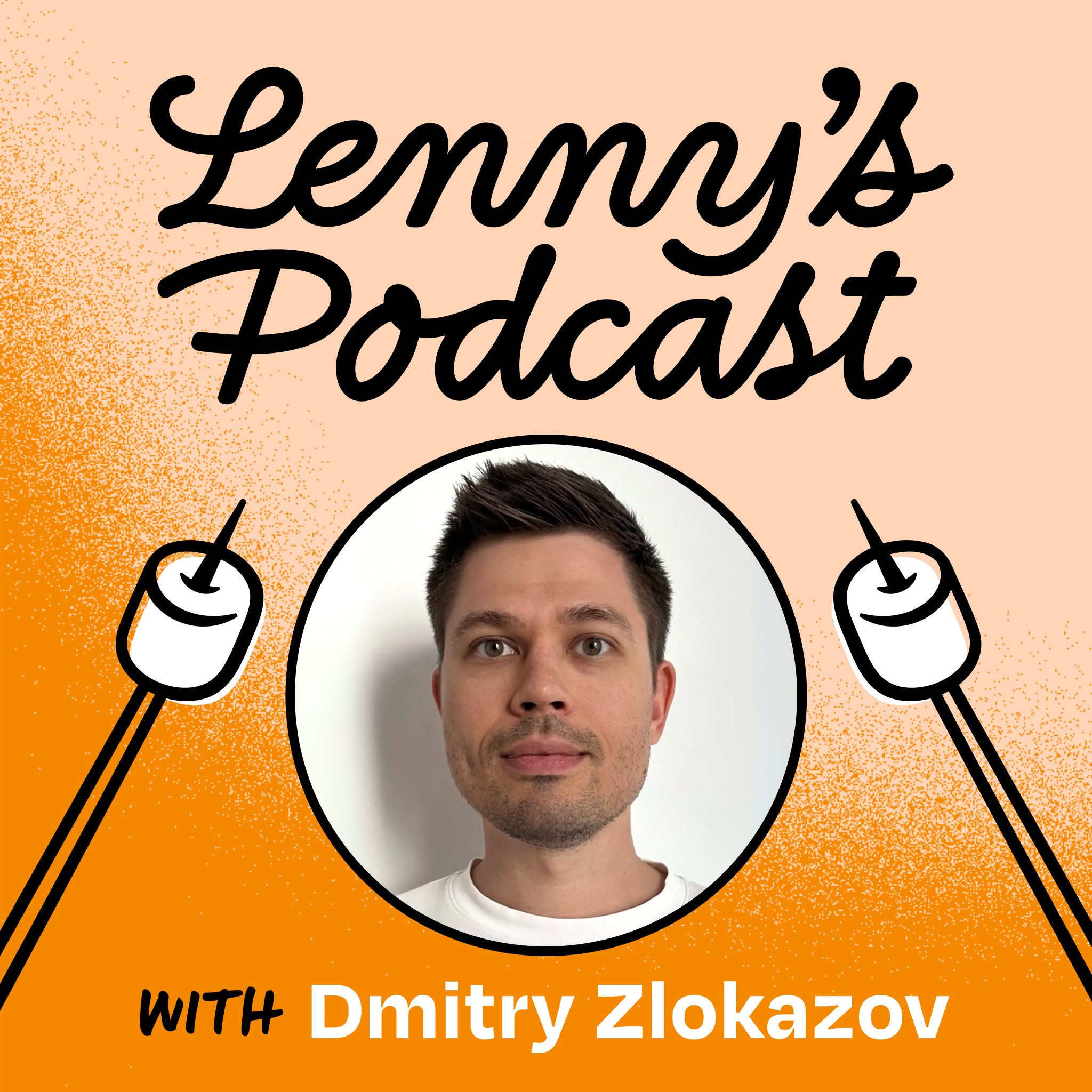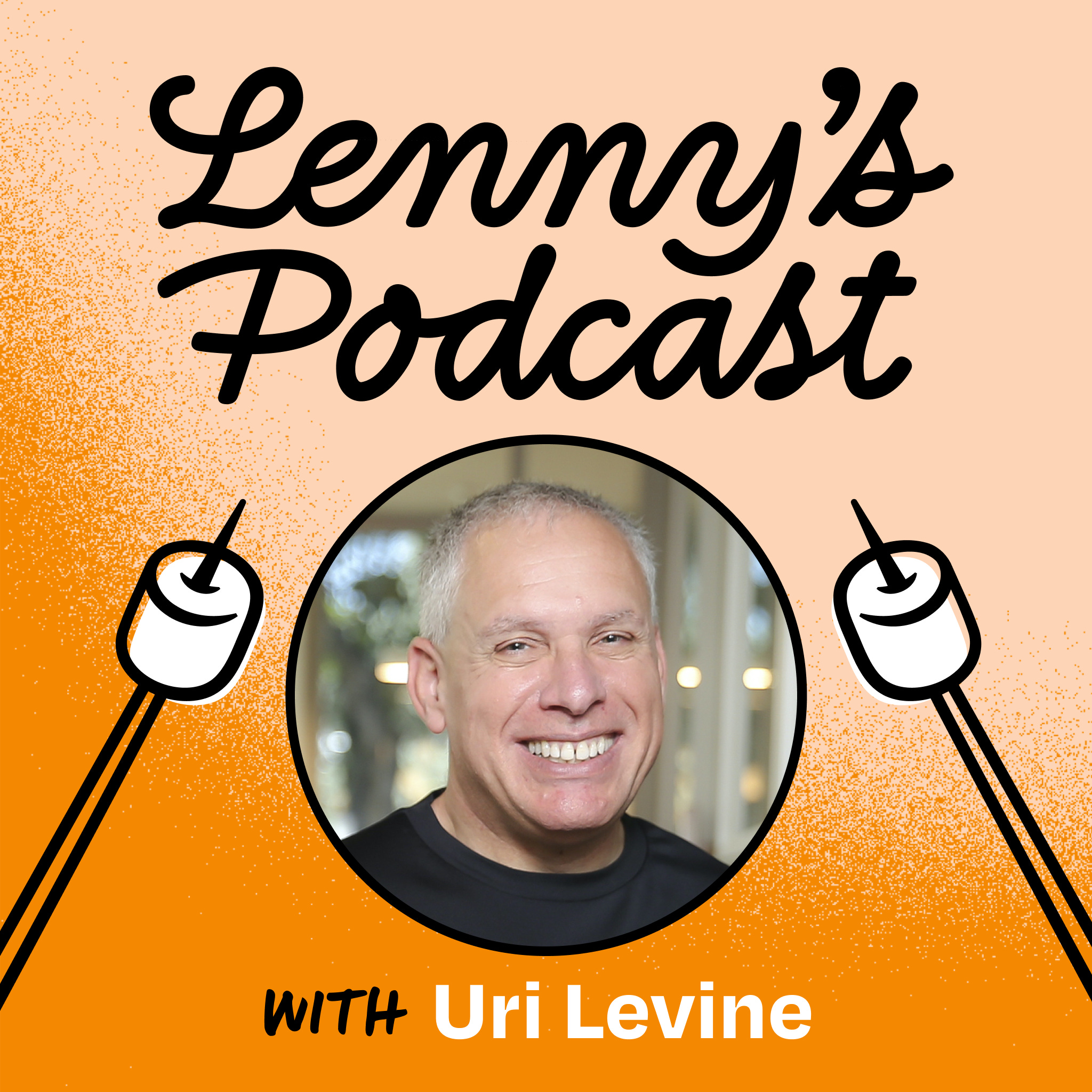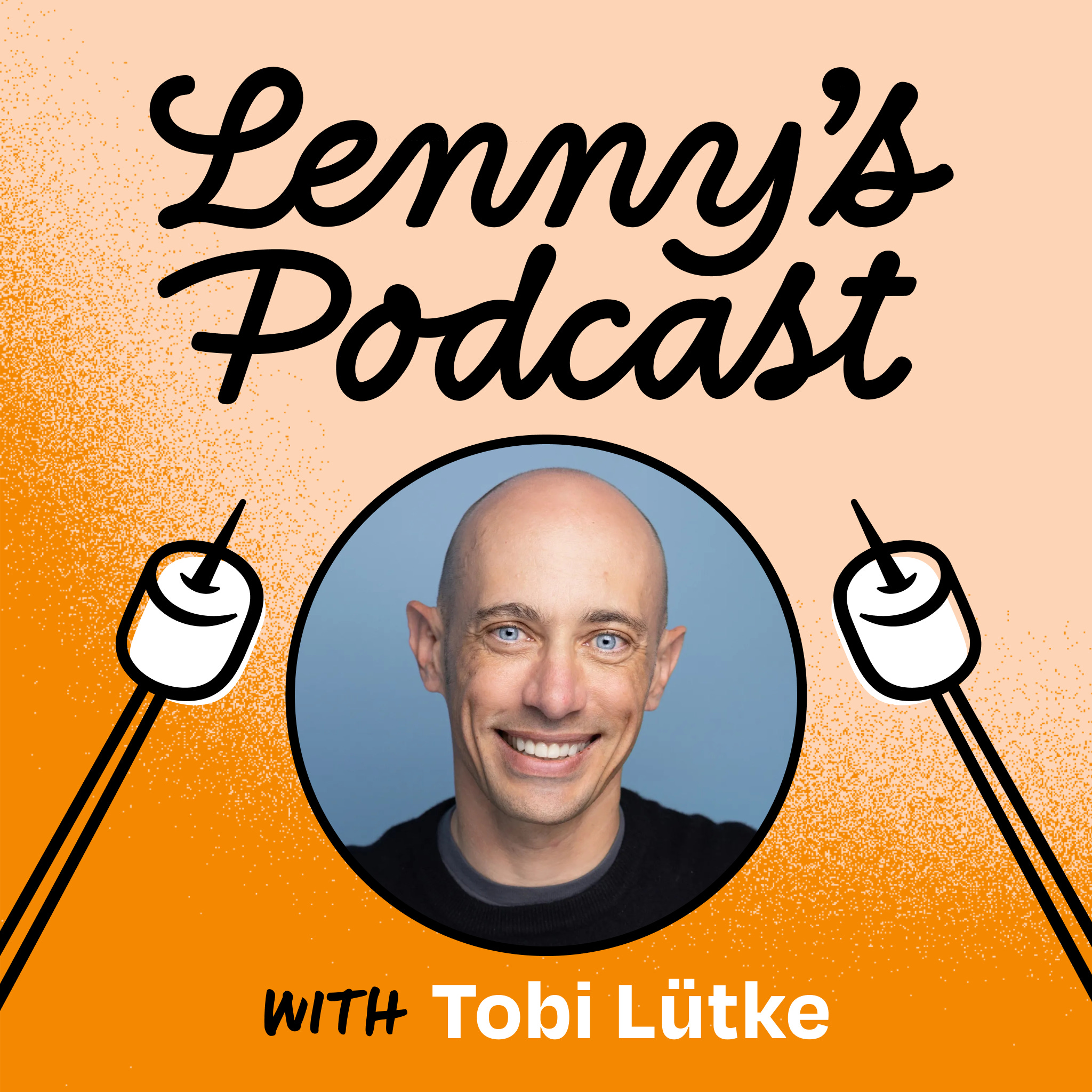
April 14, 2024 • 1hr 21min
The GitLab way: Kindness, transparency, and short toes | David DeSanto (CPO)
Lenny's Podcast: Product | Growth | Career

Key Takeaways
- GitLab operates with radical transparency, sharing team meetings publicly on YouTube and maintaining an extensive public handbook detailing company operations
- This transparency allows for community contributions, faster onboarding, and building trust with customers
- GitLab's core values include kindness, assuming positive intent, and having "short toes" to avoid territorial behavior
- As a fully remote company, GitLab focuses on asynchronous communication, clear documentation, and empowering local decision making
- GitLab initially pursued a "breadth over depth" product strategy to build out their DevOps platform, but is now shifting to "depth over breadth" in key areas
- For AI integration, GitLab uses multiple specialized models for different use cases rather than trying to fit everything into one large language model
Introduction
In this episode, Lenny interviews David DeSanto, Chief Product Officer at GitLab. GitLab is the largest remote-only company in the world and has grown from an open-source code management product to a multi-product DevOps platform. The conversation explores GitLab's unique culture of transparency, their approach to remote work, product strategy, and AI integration.
Topics Discussed
GitLab's Culture of Transparency (00:00)
GitLab takes an extremely transparent approach to their operations:
- They post videos of many internal team meetings on YouTube
- They maintain an extensive public handbook detailing company policies and operations
- Their issue tracker for product development is largely public
David explains the benefits of this approach:
"We get people who then contribute because of what they see. Oh, I can go build that. I know what that is. Hey, I ran that same problem too. I'd love to hear how you solved it."This transparency allows for:
- Community contributions to product development
- Faster onboarding for new employees
- Building trust with customers by being open about direction and strategy
Implementing Transparency (14:29)
David shares advice for companies looking to increase transparency:
- Start small by publishing team meeting notes or recordings internally
- Push yourself to be uncomfortable and question what truly needs to be confidential
- Focus on creating a single source of truth for information
- Be prepared for occasional mistakes in over-sharing, but learn from them
He emphasizes that the benefits outweigh the risks:
"I think the risk of that occasionally happening is way below the value of actually pushing yourself to do it."GitLab's Core Values (21:53)
GitLab has several unique core values that shape their culture:
- Kindness - Treating others with respect and assuming positive intent
- Transparency - Being open about decision-making and company operations
- Collaboration - Working together effectively across a remote environment
- Results - Focusing on outcomes for customers rather than hours worked
- Efficiency - Finding ways to work smarter and eliminate waste
- Having "short toes" - Avoiding territorial behavior and being open to others' contributions
On the "short toes" value, David explains:
"That's where if you have long toes, you feel like people are stepping on you, whereas you had short toes about the work. It's not about you. You end with a lot less of the negative headbutting, especially in an asynchronous culture like GitLab."Advice for Remote Work (34:42)
As a fully remote company, GitLab has developed effective practices for distributed teams:
- Focus on asynchronous communication - Rely on written documentation over real-time meetings
- Be very clear in requirements and expectations - Remote work requires more explicit communication
- Empower local decision making - Trust team members to make choices without constant oversight
- Over-communicate - Err on the side of sharing too much rather than too little
- Make time for in-person events - Build human connections to support remote collaboration
David emphasizes the importance of clear documentation:
"If you're in an all remote world, your requirements have to be clear, you know, sometimes you can get away with, hey, this, I have a daily stand up or a couple weeks stand up. And then you use that as the opportunity to clarify something. You have to get it written right the first time, or at least refined before you expect someone to work on it."Tools for Remote Work (48:25)
GitLab relies on several key tools to support their remote operations:
- GitLab - Their own platform for project management, code review, and collaboration
- Slack - For real-time messaging and quick communications
- Zoom - For video meetings when synchronous communication is needed
- Google Workspace - For email and document collaboration
David notes that they try to minimize email use internally, relying more on GitLab issues and Slack for communication.
Breadth-over-depth Strategy (57:18)
GitLab initially pursued a "breadth over depth" product strategy:
- Built out a wide range of features across the entire DevOps lifecycle
- Allowed them to establish their position as a comprehensive DevOps platform
- Helped them find their key differentiators and market fit
However, they are now shifting to more of a "depth over breadth" approach:
"Last year we made the conscious decision to start to pivot to depth over breadth. And that's because we have a very broad platform today. We are touching everything from business continuity planning and OKRs, to enterprise agile planning and team planning, to coding, deploying, securing, monitoring the entire SDLC. And we now know there's key areas where we need to be really deep to help companies accelerate delivering software."These key areas for depth include:
- Source code management
- Code review
- IDE experience
- Remote development
- CI/CD
- Security and governance
- Planning
- AI integration
AI at GitLab (1:04:14)
GitLab is taking a unique approach to AI integration:
- AI across the entire software development lifecycle - Not just for developers, but for all roles involved
- Transparency and privacy focus - Being open about AI models used and not using customer data for training
- Efficiency boost - Aiming to take productivity gains from 7x to 10x with AI
David emphasizes the importance of using the right AI model for each use case:
"What sometimes people will do is they go, oh, there's this really popular large language model, whether that's a commercial or open source, and they make everything fit into it. And what you end up doing is actually reducing the quality that someone can experience with that feature that's leveraged by AI."GitLab uses around 16 different AI models in their GitLab Duo AI suite, partnering with companies like Google and Anthropic for some models while developing others in-house.
GitLab's Products and Solutions (1:13:11)
David provides an overview of GitLab's comprehensive DevOps platform:
- Source Code Management (SCM) and Code Review
- Continuous Integration and Continuous Deployment (CI/CD)
- Security and Compliance - Application security scanning, software bill of materials, traceability
- Monitoring and Analytics - Value stream management, product analytics
- Planning - Enterprise agile planning capabilities
- Remote Development - Getting developers set up quickly on projects
He notes that they are expanding into observability and service management as well.
Conclusion
GitLab's unique approach to transparency, remote work, and product development has allowed them to build a comprehensive DevOps platform while fostering a strong company culture. Their willingness to share internal processes publicly and empower employees in a distributed environment offers valuable lessons for other organizations. As they continue to expand their platform and integrate AI capabilities, GitLab remains focused on improving efficiency and collaboration across the entire software development lifecycle.









